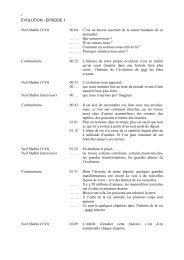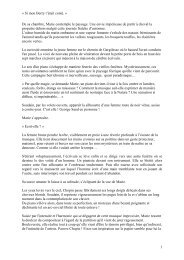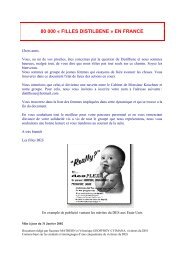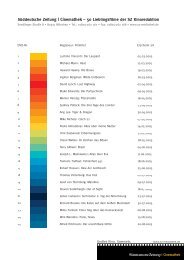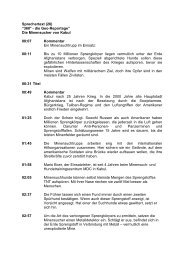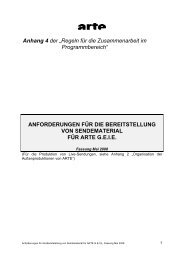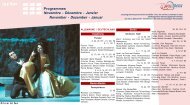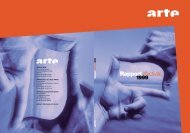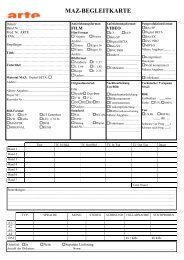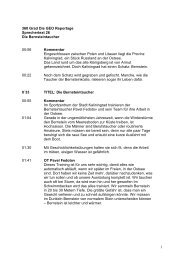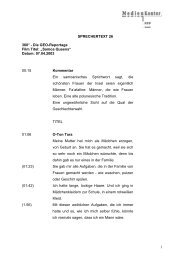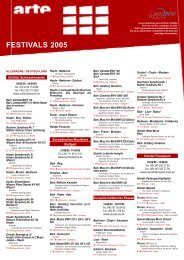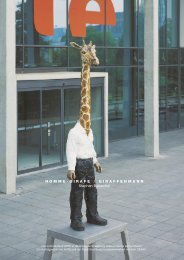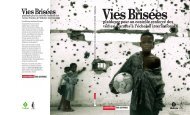POPs IN AFRICA HAZARDOUS WASTE TRADE 1980 - 2000 ... - Arte
POPs IN AFRICA HAZARDOUS WASTE TRADE 1980 - 2000 ... - Arte
POPs IN AFRICA HAZARDOUS WASTE TRADE 1980 - 2000 ... - Arte
Create successful ePaper yourself
Turn your PDF publications into a flip-book with our unique Google optimized e-Paper software.
According to James de Vita, the U.S. prosecuting attorney in the<br />
Zimbabwe case, in early 1983 the Colberts purchased bacteriainfected<br />
personal hygiene products, including toothpaste,<br />
claiming that they could “sell the material to overseas purchasers<br />
in Third World countries.”<br />
They also shipped chemical waste to a corporation known as<br />
Kuwait Sponge again misrepresenting the waste as virgin<br />
chemicals. Similarly, in 1979, the Colberts sent scrap industrial<br />
polyvinyl chloride resins to India.<br />
When the Colberts could not find a company in the developing<br />
world to take the wastes that they had obtained from U.S.<br />
industry and government agencies, they simply abandoned the<br />
wastes in over 20 warehouses across the U.S., often in heavily<br />
populated areas.<br />
In 1984 a U.S. Environmental Protection Agency report found<br />
that the Colberts’ abandoned wastes were often “leaking<br />
copiously, creating a serious risk of chemical reaction, fire and<br />
the generation of toxic fumes.”<br />
According to de Vita, the Colberts operating method “is, thus,<br />
obvious. They selected that portion of the hazardous waste they<br />
could pawn off on foreign customers and abandoned the balance.<br />
They expected to get away with fraud relying on their Third<br />
World customers’ supposed ignorance, distance, the dilatory<br />
tactics of their attorneys, and frequent changes of the corporate<br />
names under which they did business.”<br />
According to Charles L. Brieant, the federal judge who heard the<br />
Colbert case, “This case involves two well educated people,<br />
having no remorse [involved] in a crime motivated by greed. It<br />
is part of a continuous course involving dealing in hazardous<br />
materials. Essentially the Court is faced here with a rather serious<br />
two-man crime wave and [it] believes...that the case requires<br />
specific deterrence as well as a sentence which will express<br />
society’s disapproval of what was done here.”<br />
The Colberts are now serving 13-year prison terms in a medium<br />
security federal penitentiary in New Jersey. All attempts at<br />
appeal have failed. They have filed a lawsuit against the U.S.<br />
government charging, among other things, “cruel and unusual<br />
punishment.” To date, 12,485 gallons of U.S. hazardous waste<br />
remain in the abandoned mine shaft in Zimbabwe. 237<br />
Obsolete Pesticides: In Zimbabwe there are 27 tonnes of obsolete pesticides. 238<br />
237U.S. vs. Colbert, Case Number CR-85-01134-01, U.S. District Court, Southern District of New York; Conversation with U.S. Information Service Bureau in Harare, Zimbabwe,<br />
January 24, 1989.<br />
238 FAO 2001<br />
118



